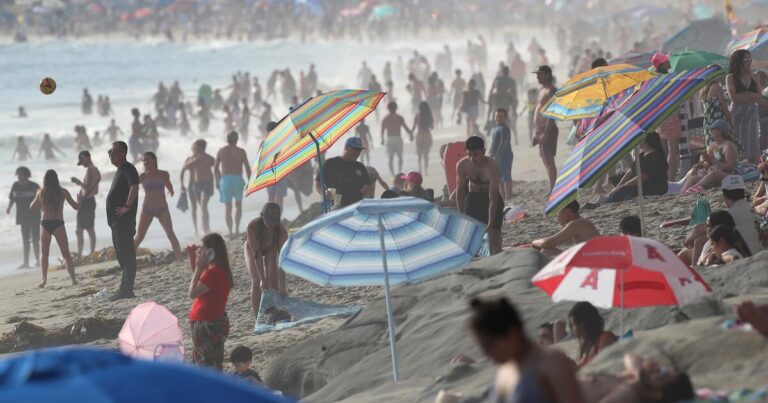As Laguna Beach grapples with the significant impacts of visitors, city officials and community stakeholders have been working together to consider ways to offset some of the associated costs.
The increase in the transient occupancy tax and business license tax came before the City Council Tuesday night, but the panel took no action.
A two-thirds vote by the council is needed to put the tax to voters in November. City staff set Aug. 9 as the deadline to submit ballot text and an impartial analysis from the city attorney.
The proposal includes increasing the transient occupancy tax, also known as the hotel bed tax, from 12% to 13%. A staff report suggests a 1% increase could generate $1.75 million in additional revenue in the first year, but there are concerns about keeping hotels competitive.
As for the business license tax, city staff said the tax structure hasn’t changed much since 1996. A July 11 city hall meeting expressed interest in focusing on bars and restaurants to bring in more tourist dollars.
The items were effectively abandoned because their discussion led to insufficient support for any of the taxes among the five-member governing body.
The City Council isn’t scheduled to meet again until Aug. 13, which likely means the tax under consideration won’t come up for a vote until at least November 2026. Such measures can only be decided by a vote during a general election.
The added cost to residents has made some council members reluctant to support a business license tax.
“We’re trying to get money back from visitors, and if you’re going to tax residents as well, then you’re really taxing residents for the visitors’ problems, and that’s something we’re trying to avoid,” Mayor Sue Kempf said. “That’s one of the things that’s confusing to me, [that] We don’t have an easy way to raise a lot of money.”
Councilman Bob Whalen hopes to send the business license tax to voters, adding that the city needs to keep its options open when it comes to generating revenue.
“We are working on a master plan for facilities that will generate a very large amount of facility needs,” Whalen said. “We are hearing from the community that they want us to increase enforcement. That is going to cost a lot of money. [for] personnel to enforce this. I think it would be a mistake for the council to say that increasing parking revenue is the only way we can get more fees from visitors.”
In lieu of taking action on the proposed resolution, the council decided to continue with the public education approach. An ad hoc committee consisting of Council Members Mark Orgill and Whalen will continue to explore options to address the city’s financial challenges as it seeks to maintain services while investing in emergency preparedness, public safety programs and infrastructure improvements.
The ad hoc committee was formed on Feb. 27, when appointed council members worked with staff on a survey to determine whether residents would support increasing the sales tax, hotel tax or business license tax.
Orgill sees continuing education and town hall meetings as a means to gain potential support for future action.
“I think it’s just an education issue,” Orgill said. “I know it’s probably going to take two years for this whole thing to get off the ground, but I think it’s better if we wait and do the work, the education, and get the community involved, and let them have a say in this whole effort.
“I think it’s important to understand that at the end of the day, you want success, right? So if this goes to the ballot, you want it to pass.”


